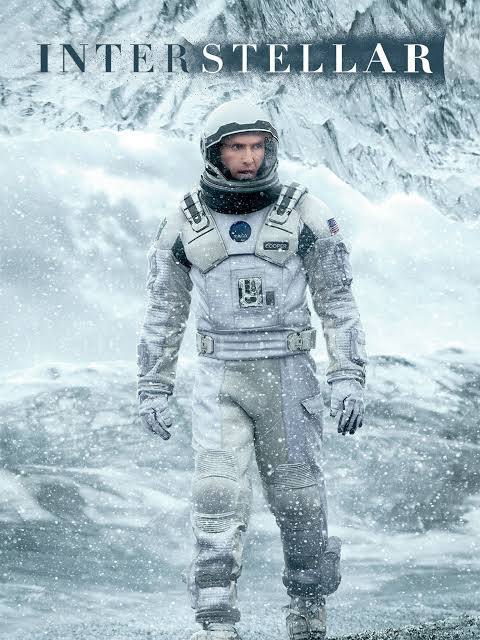Interstellar Movie Review

Synopsis
In the near future around the American Midwest, Cooper, an ex-science engineer and pilot, is tied to his farming land with his daughter Murph and son Tom. As devastating sandstorms ravage Earth's crops, the people of Earth realize their life here is coming to an end as food begins to run out. Eventually stumbling upon a N.A.S.A. base 6 hours from Cooper's home, he is asked to go on a daring mission with a few other scientists into a wormhole because of Cooper's scientific intellect and ability to pilot aircraft unlike the other crew members. In order to find a new home while Earth decays, Cooper must decide to either stay, or risk never seeing his children again in order to save the human race by finding another habitable planet.
My Review
Plot Overview
Set in a dystopian future where Earth is on the brink of ecological collapse, Interstellar follows Cooper (Matthew McConaughey), a former NASA pilot turned farmer, who is recruited to join a last-ditch effort to save humanity. Alongside a team of astronauts, including Brand (Anne Hathaway), Cooper embarks on an intergalactic journey through a wormhole in search of habitable planets. As the mission progresses, the crew faces perilous challenges and makes heartbreaking decisions, all while time itself becomes a formidable antagonist.
Performances
McConaughey delivers one of the most compelling performances of his career, balancing Cooper’s stoic resilience with moments of raw vulnerability. Anne Hathaway is equally impressive as the determined and idealistic Brand. Jessica Chastain, playing the adult version of Cooper’s daughter Murphy, brings emotional weight to her role, embodying the film’s central theme of enduring love.
Direction and Cinematography
Nolan’s direction is masterful, as he deftly combines intricate scientific concepts with deeply personal storytelling. The film’s visual spectacle, brought to life by cinematographer Hoyte van Hoytema, is breathtaking. From the haunting vastness of space to the surreal landscapes of alien worlds, every frame is a work of art. Hans Zimmer’s evocative score, with its use of organ and minimalist motifs, heightens the tension and emotional resonance, creating a sonic landscape as vast as the film’s visuals.
Themes and Science
What sets Interstellar apart is its ambitious attempt to ground its science fiction in real science. Consulting physicist Kip Thorne ensured the accuracy of concepts like wormholes, relativity, and black holes, making the film not just entertainment but also a thought-provoking exploration of space-time. Yet, at its heart, the film is about human connections, particularly the bond between parents and children, and how love transcends dimensions.
Criticisms
Despite its many strengths, Interstellar is not without flaws. The dialogue occasionally veers into expository territory, and some viewers might find the film’s third act – with its metaphysical take on the nature of time and love – overly sentimental or confusing. However, these issues are overshadowed by the film’s emotional and visual impact.
Verdict
Interstellar is a bold, ambitious film that pushes the boundaries of cinematic storytelling. It’s a rare combination of spectacle and substance, a film that challenges the mind and stirs the soul. Whether you’re a fan of science fiction or simply appreciate stories about the human spirit, Interstellar is a must-watch.
I give this movie a 5/5 star rating